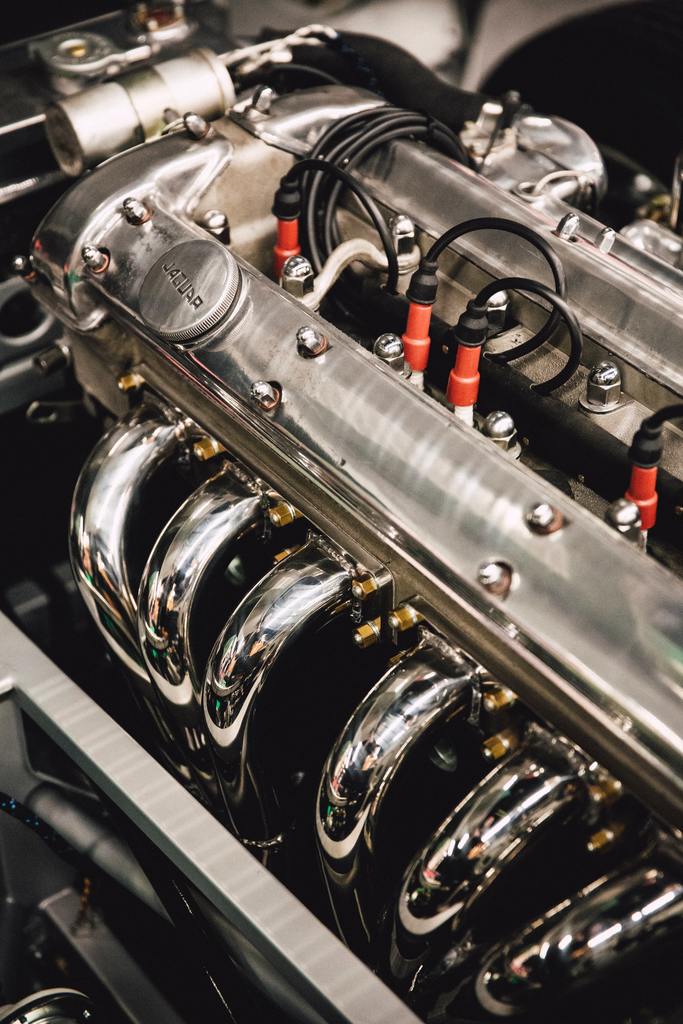We don’t expect you to do any repairs or maintenance on your car engine, however it is important to have a general understanding of how your car engine works.
Learning a bit about an engine makes it much easier to have a discussion with your technician or panel beater, enabling you to understand more about how your vehicle is maintained and serviced.
Knowing about different types of engines and engine components also makes the process of buying a new car much simpler as the car engine features become clearer with some general engine knowledge.
How do car engines work?
The most common type of car engine is an internal combustion engine (ICE). (We’ll save the discussion about the engines of electric vehicles for another post.) The job of your car’s engine is to turn fuel into power.
Power is generated when fuel and air mix and are pumped into the engine’s
cylinders. The mix is ignited by a spark – hence the name of the ignition – causing a small explosion.
The explosion is actually energy released in the form of expanding gas, which happens when gas and air are enclosed in a small space and ignited. With each mini explosion, the cylinders that contain the pistons move up and down, sending power through the gears to the wheels.
Petrol (gasoline) engines and diesel engines are internal combustion engines. Both convert fuel into technicianal energy through a series of explosions, or combustions.
This occurs through a four-stroke combustion cycle – the intake stroke, the
compression stroke, the combustion stroke, and the exhaust stroke.
Petrol engines
The obvious difference between a petrol engine and a diesel engine is the type of fuel you put in the car. The other difference is how energy is created.
With a petrol engine, the fuel is mixed with air and compressed by pistons. It is
then ignited by sparks from the spark plugs.
Diesel engines
In diesel engines, air is compressed before it gets mixed with the fuel. Since the air heats up when compressed, it makes the fuel ignite.
1. What temperature should your car engine be?
Most people pay little attention to the temperature of their car engine – that is,
until it overheats or the temperature gauge warns them that the vehicle is
overheating.
Your car engine should run at a temperature between 75 and 105 degrees Celsius (190-220 degrees Fahrenheit).
Why is my engine so hot?
Because the power generated by your engine is a series of combustions/explosions, a great deal of heat is generated. This is normal. Your vehicle has a cooling system that prevents the car from overheating.
This cooling system consists of several components – the radiator, coolant pump, heat exchanger, thermostat and coolant filters.
2. What causes a tapping noise in the car?
You should always have your car checked by your technician if you hear any unusual sounds. If you hear a tapping noise, it may be a sign that your engine components are not getting enough lubrication.
Your engine may be low on oil or there could be a problem inside the engine
causing low oil pressure. It’s best to get this looked at by a professional technician as the tapping noise may be caused by worn engine components.
3. What is a simple car engine?
There are actually several different types of car engines. These include: inline,
straight, vee (or V), flat, VR, W, rotary, four cylinder, six cylinder, V8, etc.
The most common type of car engine is sometimes referred to as a simple car
engine. As its name suggests, it is the simplest type of engine. It consists of four
vertical cylinders close together in a row, or inline. Fuel is mixed with air, inducted into the cylinders, compressed by the pistons, ignited, causing combustion.
4. Choosing the right car oil
Changing your car’s oil is something you can do yourself. But you need to make
sure you’re choosing the right car oil for your vehicle. There are different types of
engine oil with differing weights. A weight of 10W-30, for example, refers to the
viscosity or thickness of the oil.
The first thing to do is to check your owner’s manual. It should list the type(s) of oil that is right for that particular vehicle.
Your next option, if you don’t have the owner’s manual, would be to give us a call for advice. We’ve serviced a broad range of makes and models and can let you know what oil is best for your vehicle.
5. Making sure that you service your car
The best way to keep your engine running properly and avoid costly repairs is by
having your vehicle serviced regularly. At Mt Roskill Collision Centre we offer a
range of services for different makes and models.
In our Basic Service check we not only check your engine performance and tuning, we also check/change your car’s oil, change the oil filter, check all of the fluids, tyre condition, coolant system – all things that are essential for prolonging the efficient running of your engine.
Get in touch with the experts at Mt Roskill Collision Centre to book a car service
appointment.
Call us on 0800 227 762 or email [email protected] for professional
and friendly car servicing advice.
